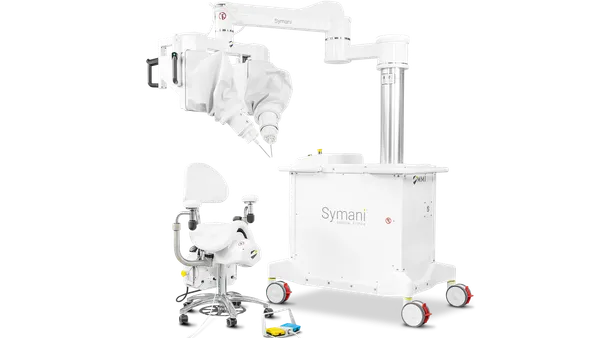Dive Brief:
-
Beta Bionics and Insulet presented data at the American Diabetes Association's annual meeting on closed-loop systems they hope will shake up the insulin delivery market in the coming years.
-
Beta Bionics presented early clinical data suggesting its hands-off artificial pancreas-type system improves control of blood sugar. Insulet shared data suggesting its hybrid-closed loop system works in children. The findings move Beta Bionics and Insulet a step closer to challenging Medtronic and Tandem Diabetes Care for the insulin pump market.
-
Other ADA updates included the release of data from trials of continuous glucose monitors (CGMs) in children and young adults with Type 1 diabetes. The pediatric trial found subjects randomized to use a CGM spent no longer in the target range than their counterparts who self-monitored their blood glucose with test strips. Researchers expressed surprise at the failure of CGM to outperform test strips.
Dive Insight:
The U.S. insulin pump market currently consists of a small number of products and companies. That looks set to change in the coming years as companies including Beta Bionics, Bigfoot Biomedical, Eli Lilly and Insulet introduce insulin pumps.
Some of the companies hoping to disrupt the pump market shared data at ADA. Insulet, which aims to bring the Omnipod Horizon Automated Insulin Delivery System to market next year, shared data on the use of the product in children aged 2 years and older who have Type 1 diabetes. The 14 subjects in the trial used the device in a supervised hotel setting.
Across 48 to 72 hours of Omnipod Horizon use, subjects were within the target glucose range 73% of the time. That compared to 55% time in range during a seven-day period in which the subjects used standard therapy, including a CGM.
Analysts saw the data in a challenging patient group as encouraging, particularly when the design of Omnipod Horizon and its potential advantages over rival products are factored in.
"Insulet might be behind others in bringing an automated insulin delivery system to market ... but it seems to be in a very good spot to improve on what's out there. The Omnipod still enjoys unmatched product differentiation as the only tubeless patch pump. This gives it advantages in simplicity, ease of use and cost," analysts at Jefferies wrote in a note to investors.
If, as expected, Omnipod Horizon comes to market next year, it is likely to initially face competition from Medtronic's 680G and currently-unapproved successor, the 780G, and Tandem's Control-IQ.
The market will get busier, though. Beta Bionics plans to start a pivotal trial of the insulin-only version of its iLet closed loop system in 2020, setting it up to bring it to market early in 2021. In parallel, Beta Bionics will work on a potentially more disruptive device, a bihormonal version of iLet that delivers insulin and glucagon. The bihormonal device is one to two years behind the insulin-only version.
Beta Bionics has recently presented data on both versions. Ten Type 1 diabetics used the device in its insulin-only configuration for one week and the bihormonal configuration for a further week. Time in range for the insulin week was 71%, compared to 79% during the bihormonal period.
The iLet achieved those competitive results despite receiving less manually-entered information from patients than is required for the functioning of rival devices. Subjects only entered their body weight. The device has captured the attention of physicians and analysts.
"Quoting a physician from a company-hosted breakfast panel: 'If the data and experiences I've seen matches the upcoming pivotal trial outcomes, this would be the only pump I would use ... and would use it for my own children,'" analysts at Stifel wrote in a note to investors.











